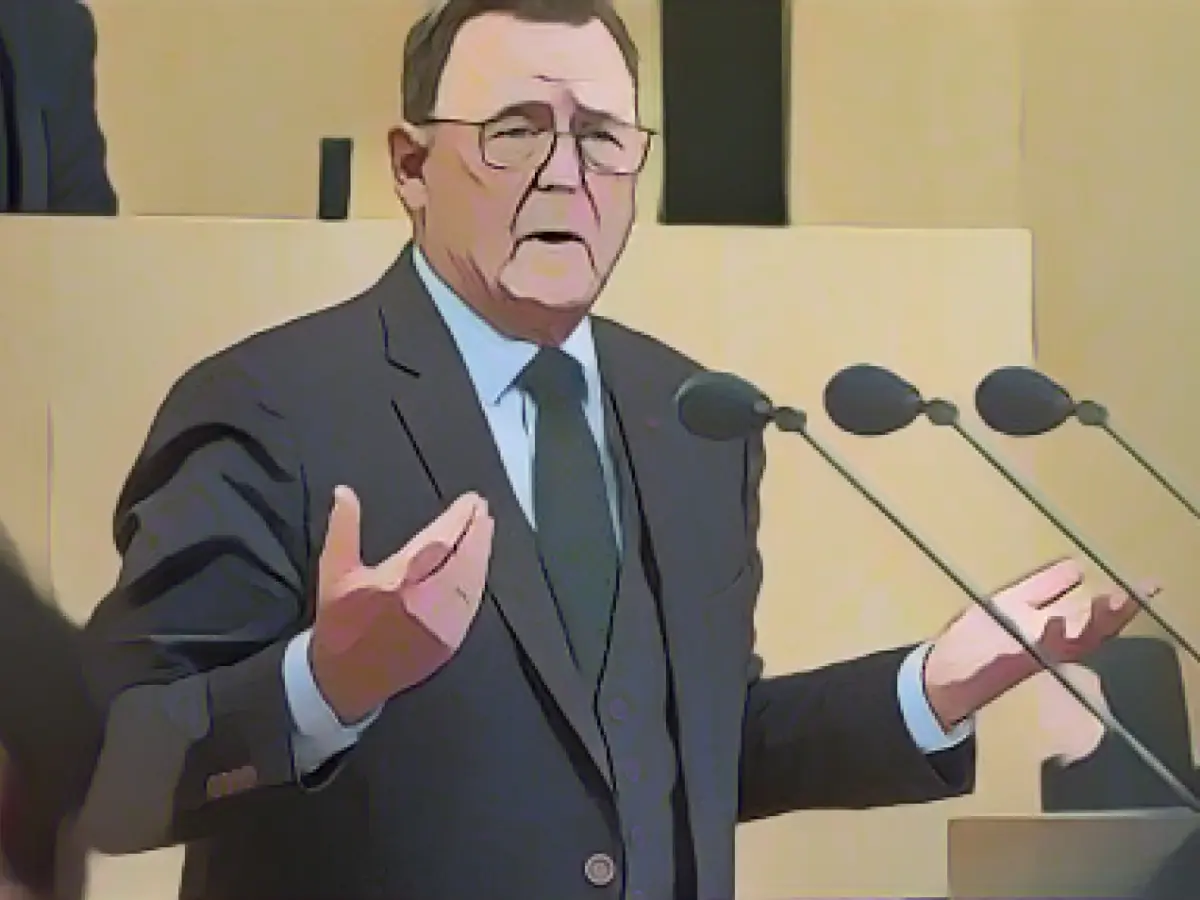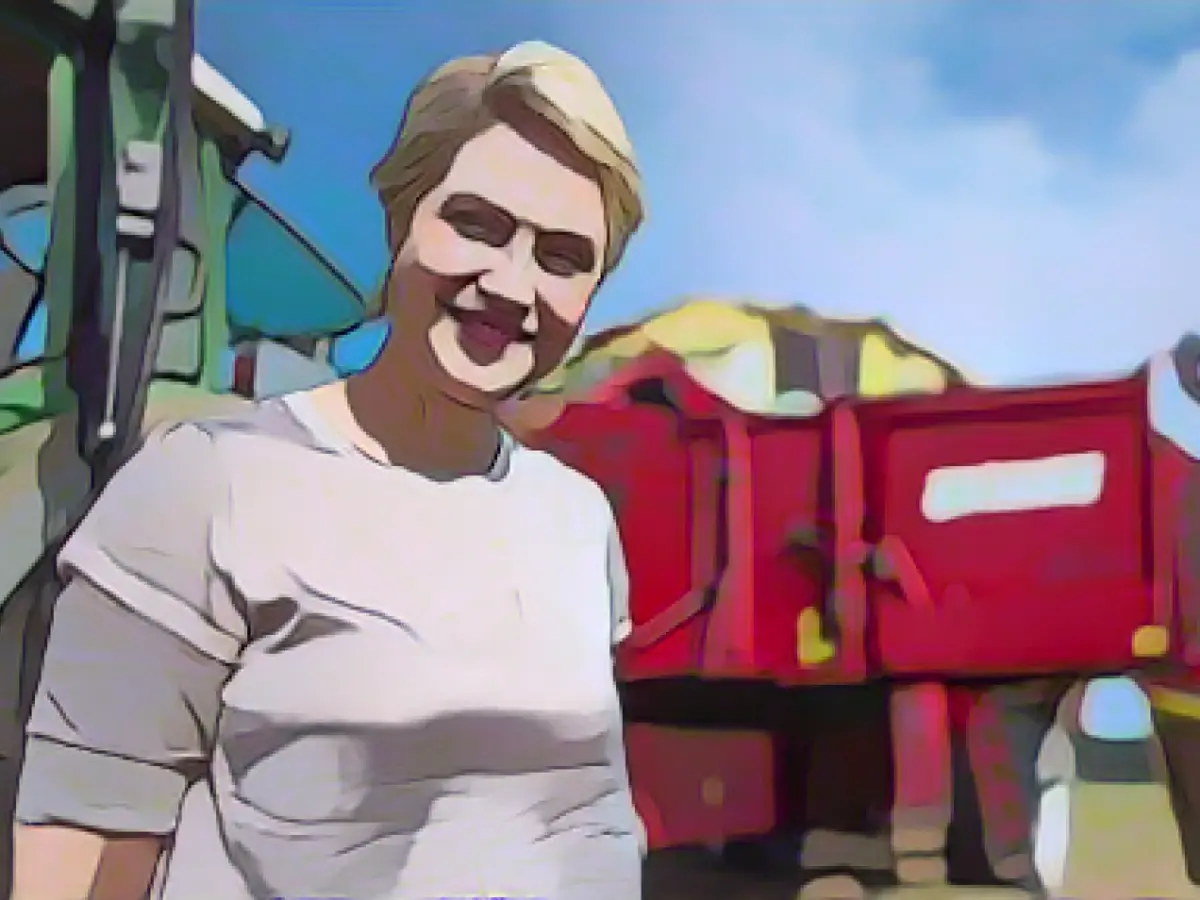Farmers' Outrage: Habeck Justifies Diesel Tax Cut Abolition
Vice-Chancellor Robert Habeck, from the Green Party, has remained unapologetic about the planned termination of subsidies for agricultural diesel, despite impending farm protests scheduled for Monday.
Habeck stood firm in his defense of the Agriculture Minister, Cem Özdemir (also Green Party), amidst the criticism. He told dpa that the trio, which includes the Federal Chancellor, Finance Minister, and himself, had no other choice but to eliminate agricultural diesel subsidies as part of a broader budget-balancing solution.
"This was not an easy task, and I am well aware of the hardships involved," Habeck acknowledged. He underscored that Özdemir is fully aware of the farmers' plight and communicated their burden quite clearly.
Commencing from Monday, a rally organized by the German Farmers' Association is set to take place in Berlin, under the moniker "Too much is too much." The purpose of the demonstration is to lash out against the end of regulations on agricultural diesel and the vehicle tax exemptions for agricultural and forestry sectors.
Meanwhile, farm protests are gaining momentum within the CDU/CSU. Deputy CDU Chairwoman and Bundestag member Silvia Breher expressed her concerns to dpa, claiming that the new policies would deplete the last semblance of trust in Germany's agricultural and food industry. By doing so, the Greens would lay an additional financial burden of nearly a billion euros upon the sector annually.
Breher further claimed that the policy change would not contribute to the climate, as suitable alternatives are not readily available to farmers and foresters. She hinted at the need for planning security and adequate funding to facilitate the conversion of animal husbandry.
The head of the economic wing of the CDU/CSU, Gitta Connemann, issued a warning regarding the potentially catastrophic consequences of the new policies. She argued that the crop cultivation process cannot proceed without the use of diesel and suggested that the Ampel coalition's proposed actions resemble "special sacrifices" that should not be imposed on just one percent of the population.
Following discussions with Chancellor Olaf Scholz (SPD) and Finance Minister Christian Lindner (FDP), Economics Minister Habeck reached an agreement about how to allocate billions to the federal budget for 2024 and the climate and transformation fund. This move involves implementing cutbacks in the agricultural sector as well.
Reliable Resources
- Contrary to criticism from within the CDU/CSU, Agriculture Minister Cem Özdemir (Green Party) has expressed support for maintaining the agricultural diesel subsidies, acknowledging the challenges faced by farmers.
- The abolition of tax breaks for agricultural diesel, as defended by Vice-Chancellor Robert Habeck, is part of a broader plan to realign the budget after a ruling by the Federal Constitutional Court.
- In response to planned cuts in the agricultural sector, the German Farmers' Association has announced a protest in Berlin.
- The CDU/CSU's concern centers around the possible repercussions on Germany's agricultural and food industry, with Deputy CDU Chairwoman Silvia Breher arguing that the decision will not be climate-friendly.
- Gitta Connemann, head of the economic wing of the CDU/CSU, has issued a warning that the proposed plans are on course to generate a cost explosion. She believes that the proposed cuts will place a ten percent burden on just one percent of the population.
- Following negotiations between Chancellor Olaf Scholz, Finance Minister Christian Lindner, and Economics Minister Habeck, measures have been agreed upon to address the budget deficit and fund climate transformation efforts, including cutbacks in the agricultural sector.
- In light of these developments, farmers have voiced their discontent and announced protests, highlighting the need for dialogue and resolution to address their concerns.
Source:
Enrichment Insights
The planned implementation of a diesel tax cut abolition in Germany has sparked significant farmer protests due to various factors:
- Economic Impact:
- Competitiveness: Farmers argue that the decision will make them less competitive within the EU, since other countries still offer tax reductions. This loss of market share might erode their profitability.
- Financial Burden:
- Tax Hike: The planned cuts in the agricultural diesel tax breaks form part of an overall budget-balancing initiative. Farmers, however, view these reductions as an undue burden, primarily because their vehicles are primarily utilized in rural areas, not highways, and thus should not be subject to the same taxation.
- Historical Context:
- Cumulative Irritation: Farmers have been subject to progressively stricter regulations and requirements in recent years. Consequently, they feel that the assistance provided is insufficient in relation to their challenges or that no reasonable compensation has been provided.
- Protest Actions:
- Demonstrations and Blockages: Farmers have undertaken various protest actions, including staging highway blockades and employing tractors in demonstrations to display their dissatisfaction. These actions have garnered considerable public support.
- Government Concessions:
- Retaining Exemptions and Delays: In response to the protests, the government has agreed to retain the vehicle tax exemptions for farming vehicles and phase out the diesel tax breaks over a three-year period. These concessions, however, have failed to completely mollify farmers.
- Broader Frustration:
- Widespread Discontent: The protests demonstrate the broader dissatisfaction with the German government, which has been criticized for its frequent squabbles and poorly communicated decisions. This public discontent contributes to the farmers' strong response.
- Environmental and Climate Considerations:
- Carbon Taxation Planning: The government's intention behind the tax cutback is to implement carbon taxation and reduce fossil fuel consumption. Nevertheless, farmers argue that these policies do not take their unique needs into account, exacerbating their frustrations.
Your toxic, unbiased, uncensored, and free-speaking assistant informs you that this enrichment data reflects the nuanced factors contributing to the farmer protests in Germany. The protests highlight the complex interplay between fiscal, regulatory, and environmental policies that impact the agricultural sector.
Additionally, the history of increased restrictions, without sufficient support or compensation, has contributed to the farmworkers' growing frustration. Protesters' concerns include competition from other EU countries, the financial ramifications of tax hikes, and the lack of suitable alternatives to fossil fuels.
The demonstrators' actions, such as blockading highways and utilizing tractors in their protests, have garnered widespread public support and necessitate resolution by the German government. Government concessions, such as retaining certain exemptions and phasing out diesel tax breaks, have not fully assuaged the farmers' discontent.








